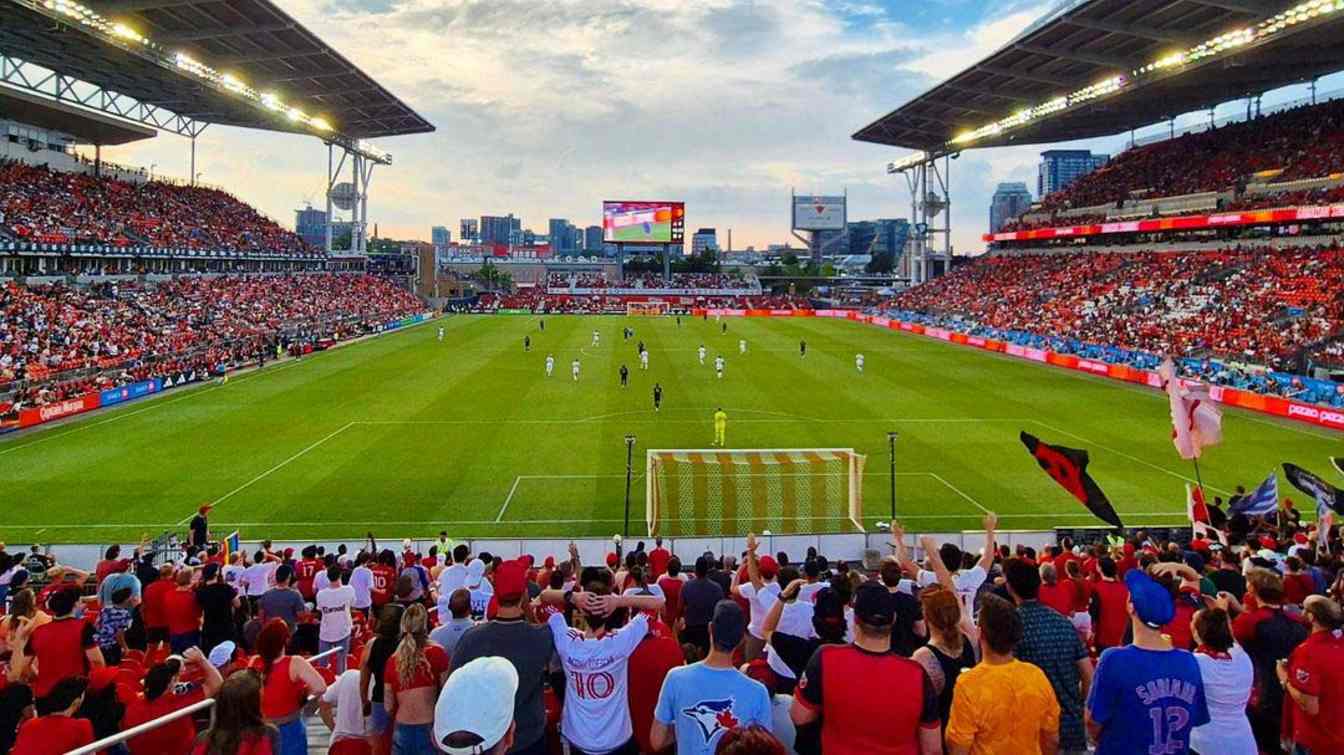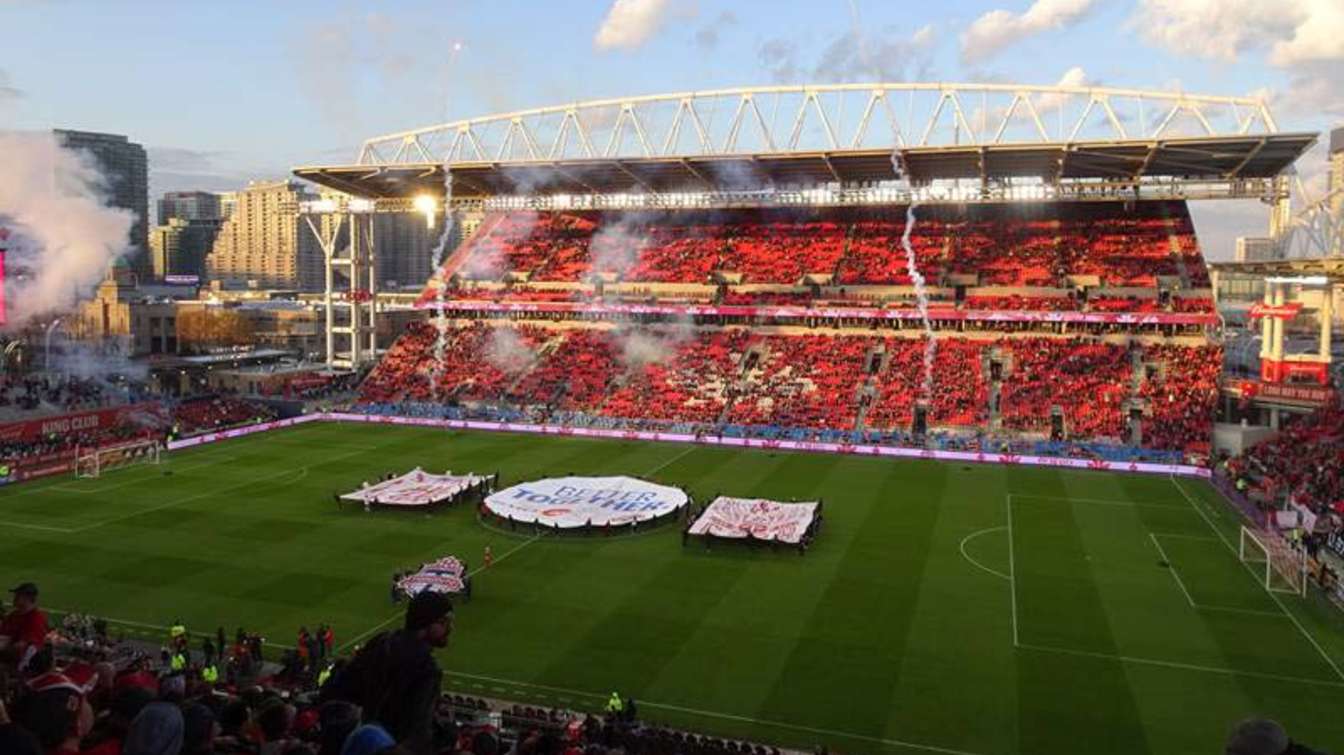Canada: How will BMO Field change for the 2026 World Cup?
source: StadiumDB.com; author: Paulina Skóra
 The FIFA Men’s World Cup is fast approaching, and Toronto’s downtown stadium, which will host six tournament matches, is undergoing a nearly $150 million upgrade.
The FIFA Men’s World Cup is fast approaching, and Toronto’s downtown stadium, which will host six tournament matches, is undergoing a nearly $150 million upgrade.
Advertisement
What does the renovation include?
The City of Toronto has announced plans to expand BMO Field – a city-owned venue operated by Maple Leafs Sports and Entertainment (MLSE) – to transform it into a world-class facility ready to welcome the globe’s biggest football event. The city will invest $123 million, while MLSE will contribute an additional $23 million.
The stadium’s capacity will be increased from around 30,000 to 45,000 seats with the addition of 17,000 temporary seats on the north and south sides, in order to meet FIFA’s hosting standards. Permanent upgrades include the installation of four new video boards, modernized locker rooms, lighting, sound and broadcast systems, as well as improved stadium Wi-Fi. A rooftop terrace and new VIP boxes for 1,000 fans will be built on the north side, while a new club lounge will be located on the west side, along the midfield line. The pitch itself will also be upgraded to meet elite international standards.
Two construction phases and rising costs
Construction has been divided into two phases: the first is already underway and scheduled to be completed by August this year. The second will begin in December and finish by March 2026, ensuring everything is ready for the first match in June 2026. Regular events at the stadium, such as Toronto FC and Argonauts games, will continue during the upgrades, though some temporary restrictions may apply.
Hosting the tournament in Toronto is now estimated to cost $380 million, far exceeding initial 2018 projections of $30–45 million. The federal and Ontario provincial governments have each pledged roughly $100 million in support. The city expects the tournament to boost local GDP by around $400 million, although FIFA’s December 2024 report suggests the impact could reach as high as $520 million. FIFA also estimates the event will generate $340 million in wages and $25 million in tax revenue.
A historic first for Canada
Mayor Olivia Chow has repeatedly highlighted that the World Cup will bring the city nearly $1 billion in economic benefit and create thousands of jobs. In June 2026, Toronto will be one of 16 host cities. The tournament will kick off on June 11 in Mexico, and on June 12, Toronto will host the first-ever men’s World Cup match played on Canadian soil. The city will share hosting duties with Vancouver – each city will host five group stage matches and one knockout round game, with Vancouver also set to stage a round-of-16 match.
Advertisement
 StadiumDB
StadiumDB ©
©  ©
©